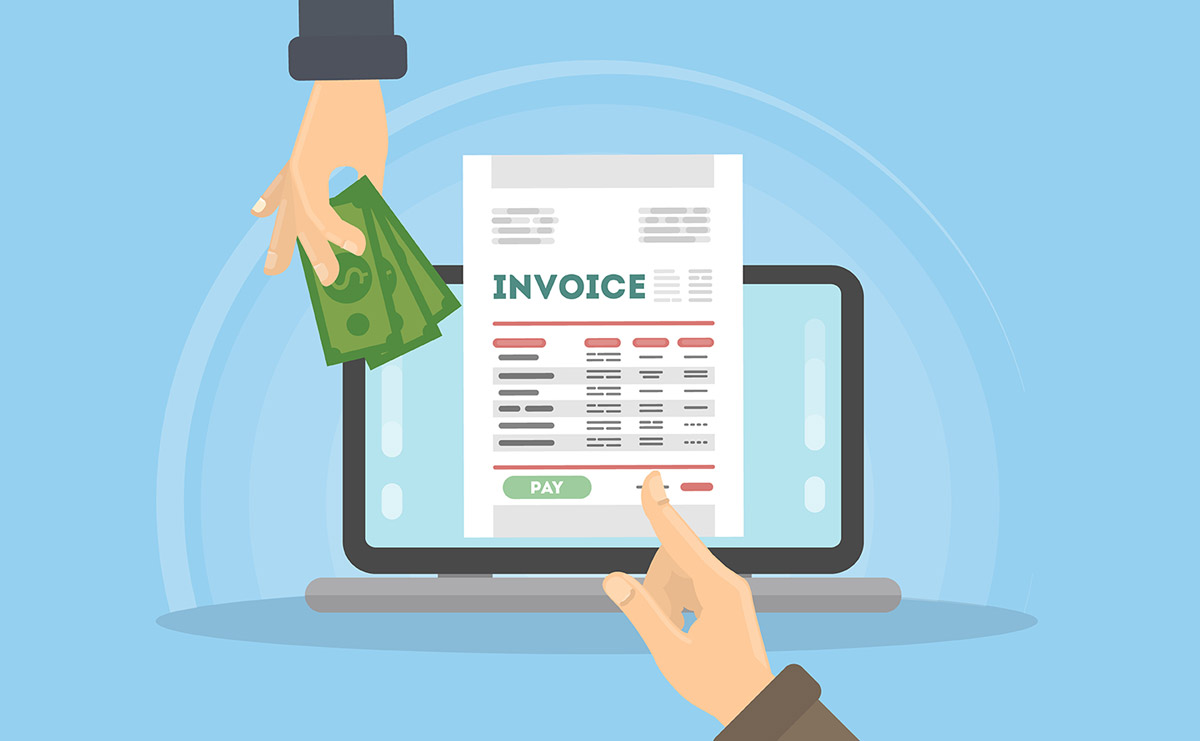Contents
What Are Appointment Booking Links and How Do They Improve Client Scheduling for Lawyers?
Effective communication and organization are crucial for running a successful law firm these days. Lawyers often balance client meetings, court appearances, and legal research, which can quickly become overwhelming. Appointment booking links offer a straightforward yet powerful solution, simplifying client scheduling and boosting productivity for legal professionals.
What Is the Appointment Booking Link?
Appointment booking link is a web-based tool allowing clients to book meetings with lawyers without needing back-and-forth communication. These links integrate directly with an attorney’s calendar, displaying real-time availability to clients. Once a client selects a time slot, the appointment is automatically added to the lawyer’s schedule, and both parties receive confirmation emails.
Most appointment booking link systems, such as RunSensible, Calendly or Acuity Scheduling, allow lawyers to customize time slots, specify meeting durations, and set parameters for different types of appointments (e.g., consultations, case reviews, follow-ups). Additionally, these tools often integrate with video conferencing platforms like Zoom or Microsoft Teams, making remote client meetings easy to manage.
How Do Appointment Booking Links Improve Client Scheduling
Streamlined Scheduling Process
The traditional method of scheduling client appointments typically involves numerous emails or phone calls to find a suitable time. Appointment booking links eliminate this back-and-forth by allowing clients to view real-time availability and select a convenient slot in seconds. This automation reduces the administrative burden on lawyers and their staff, saving time that can be spent on more pressing legal work.
24/7 Availability for Clients
Appointment booking links allow clients to book meetings anytime, even outside business hours. Clients do not need to wait for office hours to reach out and schedule an appointment, enhancing their experience and ensuring no potential client is lost due to inconvenient timing.

Reduction in No-Shows
Most appointment booking link tools send automated reminders to the lawyer and the client, significantly reducing the likelihood of no-shows or missed appointments. Reminders can be sent via email or text message, ensuring clients are aware of their upcoming meetings and reducing the chance of miscommunication.
Sync with Personal Calendars
Many appointment booking link systems offer the option to sync with personal or office calendars, such as Google Calendar, Outlook, or Apple Calendar. This synchronization ensures that all meetings are reflected across different devices and platforms, reducing the chance of missing a necessary appointment or creating conflicts with personal obligations.
Customization and Control
Lawyers have full control over how they manage their schedules with appointment booking links. They can set specific availability, block out personal time, and even allow different types of appointments to be booked at varying durations. This flexibility ensures that the lawyer’s time is managed effectively, preventing overbooking or double-booking appointments.
Improved Client Experience
From a client’s perspective, appointment booking links are a convenient and user-friendly way to book a meeting. Clients appreciate the transparency of seeing available slots and being able to schedule their appointments instantly. This ease of use enhances the client experience and portrays the lawyer or law firm as modern and efficient.
Integration with Legal Practice Management Systems
Many appointment booking link tools can be integrated with legal practice management software like RunSensible, Clio, Lawmatics, and Hubspot. This allows for seamless management of client information, case notes, and scheduling all in one platform. Such integration ensures that lawyers save time on scheduling and organize their client and case data efficiently.
Enhancing Productivity and Time Management
Appointment booking links contribute to better time management by preventing overbooked schedules and allowing lawyers to allocate specific periods for meetings, research, or other critical tasks. By automating the scheduling process, lawyers can focus on their legal work, knowing their calendar is efficiently managed without constant manual input.
Secure Communication and Data Management
Appointment booking links often come with built-in security features, ensuring client data is handled securely. This is especially important for lawyers, as confidentiality and compliance with data protection regulations are paramount. Tools like encryption and secure data storage mean client appointments are convenient and safe.
Lead Conversion
Appointment booking links can be embedded on a lawyer’s website, social media, or email campaigns. This makes it easy for prospective clients to book consultations instantly, increasing the likelihood of converting inquiries into paying clients.
Integration with Payment Systems
Some appointment scheduling platforms also allow lawyers offering paid consultations to integrate payment systems directly into the booking process. This feature streamlines the payment process by enabling clients to pay upfront when booking appointments. This guarantees that the lawyer is compensated for their time and helps reduce no-shows, as clients are more likely to attend a meeting they have already paid for.
By combining scheduling and payment functions into one step, law firms can eliminate the need for separate invoicing or manual payment tracking. This automation can benefit lawyers offering flat-rate services or initial consultation fees, as it simplifies the administrative burden and ensures payment is received before services are rendered.
Flexibility for Lawyers and Firms of All Sizes
Whether a solo practitioner or a large law firm, appointment booking links can be customized to suit any legal practice. Solo lawyers or small firms allow for the optimization of limited resources. With fewer administrative staff to handle scheduling, appointment booking links take on the virtual assistant role, automating key processes and reducing the workload. This frees up valuable time for lawyers to focus on casework or client development.
Larger law firms also benefit from the scalability of appointment booking links. With multiple lawyers handling various cases, appointment booking links can be used to assign different appointments to the appropriate lawyer based on the client’s needs or the type of legal matter. This system can be customized for departmental availability, ensuring that each client is directed to the lawyer best suited to handle their case without overwhelming one specific team or individual.
Multiple Appointment Types
Appointment booking links allow lawyers to offer different appointments—such as initial consultations, ongoing case updates, and follow-up meetings—with customizable time slots and details. This versatility ensures that lawyers can manage various appointment types without manually adjusting their calendars for each case. It also helps clients easily understand the appointment type they are booking, whether a quick check-in or a more detailed case review.
Reduced Last-Minute Cancellations
Automated reminders and confirmations help reduce the likelihood of last-minute cancellations. Clients receiving multiple notifications leading up to the appointment are more likely to honor the commitment or provide enough notice to reschedule, helping the lawyer avoid gaps in their schedule.
Supports Remote and Hybrid Work
As more law firms adopt remote and hybrid work models, appointment booking links help ensure client meetings can be easily scheduled and managed, regardless of where the lawyer is located. Whether working from the office or remotely, lawyers can maintain a consistent and professional client experience without geographic limitations.
Creates a Modern, Tech-Savvy Image
In a competitive legal landscape, law firms that leverage technology, like appointment booking links, are seen as forward-thinking and tech-savvy. Clients, especially younger generations, appreciate firms that use modern tools to make interactions easier and more efficient. This can give a law firm a competitive edge and help attract tech-conscious clients.
Security and Privacy Considerations in Using Appointment Booking Links
When law firms implement appointment booking links to streamline client scheduling, they must be aware of security and privacy considerations to ensure client confidentiality and protect sensitive information. Here are vital aspects to consider:
Encryption and Data Protection: Appointment scheduling platforms must offer encryption protocols to protect the data entered by clients. Personal details, case types, and contact information should be encrypted in transit (when data is being sent to the server) and at rest (when data is stored on the server).
Access Control and Authentication: Ensure only authorized personnel can access the appointment scheduling system. Implementing multi-factor authentication (MFA) or strong password policies for users helps prevent unauthorized access to sensitive client data.
Data Minimization: Only collect the essential information necessary for scheduling appointments. Avoid requesting sensitive data (like case specifics or legal strategy) not required at the scheduling stage. This minimizes exposure in case of a data breach.
Compliance with Privacy Laws: Depending on your jurisdiction, appointment scheduling systems must comply with privacy laws like GDPR, HIPAA, or CCPA. This ensures that client data is handled in a way that meets legal privacy and data protection standards.
Platform Security: Use trusted and secure scheduling platforms such as RunSensible with a strong track record of data protection. Check the platform’s privacy policy and ensure it does not share, sell, or use client data for purposes outside of the scheduling.
Client Consent: Be transparent with clients about how their data will be used. Include a clear privacy notice or consent form when they use appointment booking links, informing them that their data will be used solely for scheduling and not for marketing or other purposes without their consent.
Audit Trails and Monitoring: Implement systems to track access and any changes made to appointment details. Audit logs help maintain accountability and ensure that only authorized individuals make adjustments or access client data.
Data Retention Policies: Develop and adhere to data retention policies that define how long appointment data will be stored. Once data is no longer needed, it should be securely deleted to prevent unnecessary retention of personal information.
Appointment Booking Links vs. Traditional Scheduling
Regarding time efficiency, appointment booking links automate scheduling, freeing up time for lawyers and support staff. The system handles availability and prevents double bookings, reducing administrative tasks. Traditional scheduling, on the other hand, can be time-consuming as staff must manage the calendar and communicate with clients. Multiple follow-ups, changes, or cancellations are often necessary, taking up valuable time.
Another advantage of appointment booking links is flexibility. Clients can select available times at their convenience and reschedule quickly without contacting the office again. With traditional scheduling, clients must wait for responses or call back if they need to reschedule, which can introduce delays. Appointment booking links also present a more modern, professional image, reflecting the firm’s commitment to efficiency and client service, while traditional scheduling may seem outdated to tech-savvy clients.
The client experience is also notably improved with appointment booking links. Clients appreciate the ease of booking, rescheduling, and managing appointments online without prolonged communication or waiting for confirmation. Traditional scheduling, though personal, can feel slower and more cumbersome, especially if there are delays or miscommunications. In addition, the automated nature of appointment booking links minimizes human errors, such as double bookings or incorrect times, while traditional scheduling is more prone to mistakes due to manual management.
From a cost and resource perspective, appointment booking links, while requiring an initial investment in software, reduce the need for ongoing administrative support, leading to long-term savings. Traditional scheduling, by contrast, requires continuous human involvement, which increases administrative costs over time. Furthermore, many appointment booking link systems integrate seamlessly with legal practice management software, providing better tracking of client interactions and syncing calendars. At the same time, traditional scheduling relies on manual input, increasing the risk of outdated or inaccurate information.
Overall, appointment booking links outperform traditional scheduling regarding convenience, time efficiency, flexibility, and error reduction. They offer a more modern, streamlined, and client-friendly approach, which is especially important for law firms looking to improve client service and operational efficiency. Traditional scheduling, while more personal, is often more cumbersome and less practical in today’s fast-paced legal environment.
How RunSensible Appointment Booking Link Automates Client Scheduling for Lawyers
Appointment booking links, such as those offered by RunSensible, revolutionize client scheduling for lawyers by automating and streamlining the process. These links allow clients to book meetings based on real-time availability without back-and-forth communication. Integrated directly into the lawyer’s calendar, appointment booking links help eliminate scheduling conflicts, send automated reminders, and sync with other platforms like Google Calendar or Outlook for seamless management. By improving time management, reducing no-shows, and providing 24/7 booking access, appointment links enhance the client experience and the lawyer’s operational efficiency, making them an indispensable tool in modern legal practice.
Final Thoughts
Appointment booking links provide a game-changing solution for law firms, enhancing efficiency and improving client experience. By automating the scheduling process, lawyers can focus more on critical legal tasks and less on administrative duties. Clients benefit from the convenience of booking appointments at their convenience, reducing miscommunication and no-shows. Additionally, the integration with legal practice management tools and security features ensures that appointment booking links streamline scheduling and maintain the confidentiality and professionalism required in legal practice. For law firms aiming to stay competitive in a tech-driven landscape, embracing appointment booking links is a step toward modernizing operations and delivering superior client service.
Disclaimer: The content provided on this blog is for informational purposes only and does not constitute legal, financial, or professional advice.







